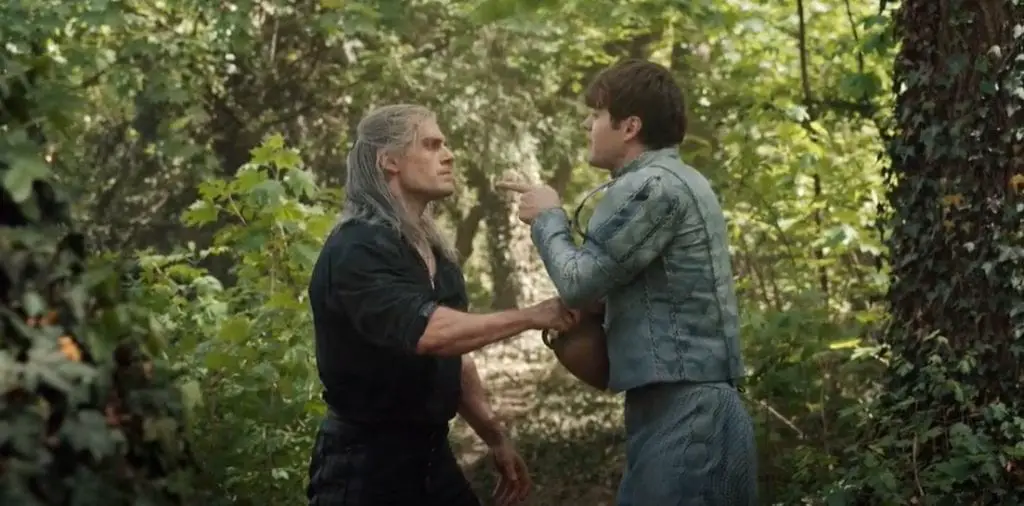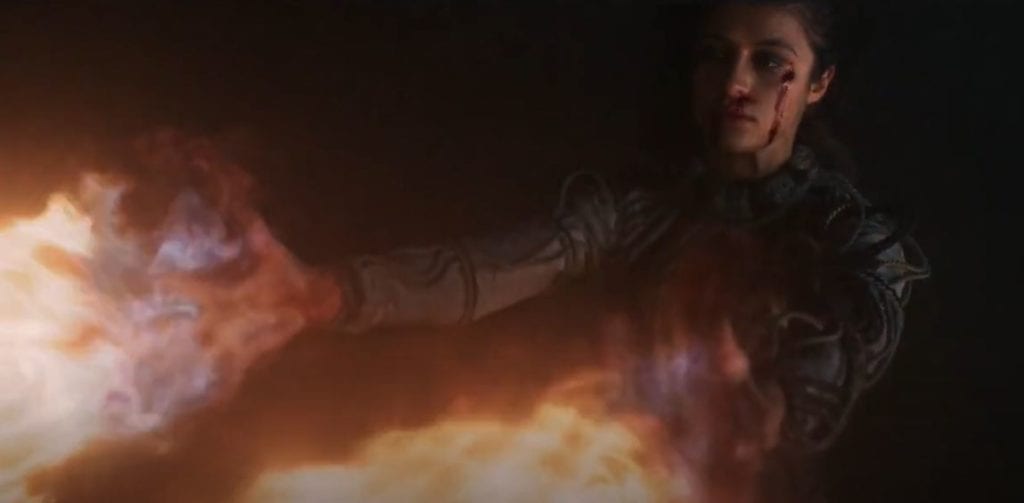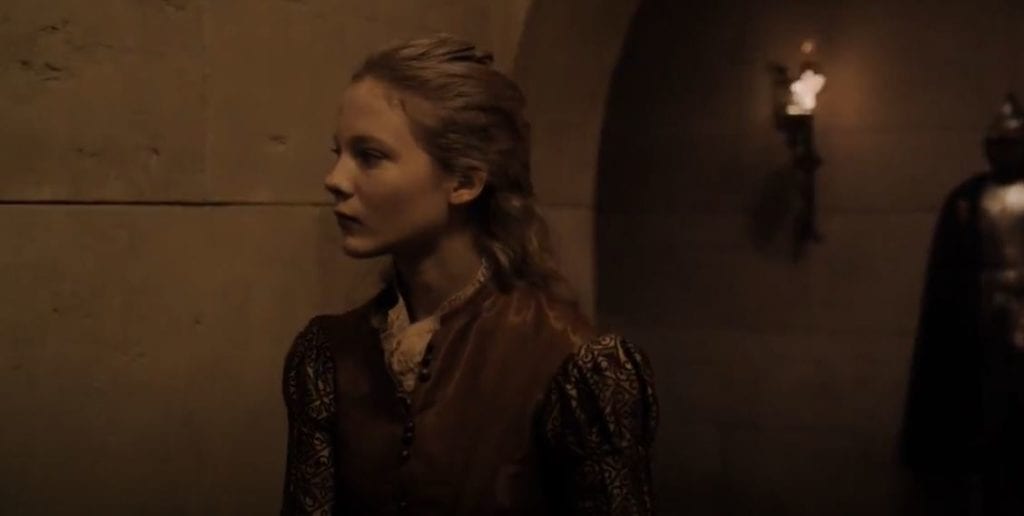Following the development of The Witcher since its announcement has been quite the experience. Between casting controversies, Twitter arguments, and a flurry of advance reviews ranging from claims it replaces Game of Thrones to disgraceful reviewers watching 2 episodes out of order before declaring it trash, it was hard to know what I was walking into when I started the series.
I went into the show as a diehard advocate for the game series and a fan of the books they came from, and I also went in a bit more optimistic than most. Showrunner Lauren Hissrich generally seemed to have the right idea about the characters, from what I saw, and also about what exactly the series is supposed to be about. Still, this isn’t the easiest property in the world to adapt.
I think this reflected in the final product. The Witcher is a show of wide variance. Sometimes it’s quite good and even excellent. Other times it struggles considerably. Sometimes the adaptation is fantastic, and other times it changes things in ways that fall well short of what I hoped for. One half of the show clearly struggles more than the other.
In the end, I’m both happy and hopeful for the future of the series.

There is a lot to like here. The casting is really quite excellent. Everyone’s first question will of course be about Geralt, the titular witcher of the series, and Henry Cavill absolutely nails the role. His movements, expressions, and delivery are spot on. For fans of the games, you’ll love how Cavill clearly took heavy inspiration from Doug Cockle’s voice acting. There were bigger questions about the casting for Ciri, and especially for Yennefer. Both are not only excellent, they stood out to me just as much as Cavill did. They carry the show through some very rough early moments.
And they really needed to, because the first 4 episodes are quite rough at times. They follow three different timelines, one for each character, and don’t do the best job of explaining these timelines. The Witcher also throws the audience into the deep end of this fantasy world without explaining many of the concepts which are second-nature, such as the political layout and magical systems. Many people will wonder just what in the world the Law of Surprise actually is. You may wonder just what in the world the racial makeup of the world is and why things work how they do.
Surprisingly, most of these problems come from the adapted material the series uses. Where Ciri follows a loosely adapted version of her earliest days in the series and Yennefer has a mostly original backstory, Geralt’s storyline follows the short stories found in the Last Wish and Sword of Destiny collections. Unfortunately, these tend to be drastically cut or changed, with awkward and sometimes poor results.
I tried my best to judge them purely as is, rather than compared to the source material, and even then they seem to fall unfortunately short. The biggest offender comes in the second episode, which adapts “The Edge of the World,” a short story that sends Geralt to rid a town of a “devil” stealing their grain. This leads to a group of elves the monster steals the grain for. Even if I ignore the way the short story tells an effective story of the oppression of elves, the episode by its own merits is rushed, the elves look pretty bad, and you get no sense of the larger story. It’s just a generic, hastily told portion of a weaker episode in the season.
I must admit, I haven’t read the Witcher novels in quite a while. However, I did re-read the short stories in the month leading up to the show’s premiere and considering that’s what this season focuses on, I had a lot of these stories fresh in mind. These episodes mostly cover the same basic ideas and themes as said stories, but never quite have room to properly breathe, especially early on. Most of the reason falls to the three timelines competing for scenes in each episode. We need to see Yennefer and Ciri, so Geralt’s adventures don’t receive the run-time necessary to tell the story completely faithfully.
But did we really need as much of Yennefer and Ciri as we get? Was it worth cutting Geralt’s time for them? The answer will depend on the viewer, and is probably the source of the mixed reviews. These episodes don’t only struggle for time, either. There are significant changes to the motivations and actions of certain characters that I don’t understand the purpose of. I think they sometimes made the episodes weaker than they should have been.
For example, King Foltest is introduced in the Last Wish short story as a young, charismatic king, basically the picture-perfect ideal of what a king should be. He doesn’t hide that his daughter is the striga, doesn’t deny it, and doesn’t hide the incestuous relationship with his sister that resulted in said daughter. I can’t say the point is entirely lost by making him an old, fat king who does hide this relationship and the daughter born of it, but something is lost.

Maybe I’m just being a book snob. It is entirely possible.
Whatever the issues, I think the Yennefer and Ciri scenes are the highlight of the early episodes and really help save it. Yennefer has easily the most consistent storyline of the season, focused on the day she is sold to the sorceresses who make her into one of them. It’s compelling, well-acted, and has the most consistent writing. Anya Chalotra is great, and retains the vulnerability of her earliest scenes even after achieving power later on. Yennefer is often thought of as a cold character, and while she certainly gives that impression, any real reading of the character recognizes the deeper wishes and insecurities of the character, and I think the show did a good job adapting her.
Freya Allen is also absolutely fantastic as Ciri. She carries many scenes throughout the season that would have been much worse without her. I’m very excited to see her moving forward, as Ciri eventually becomes the central character of the story.
While she remains separate from the others for basically the entire season, the show starts hitting its stride once Geralt and Yennefer’s storylines connect in the fifth episode. Cutting down to what is mostly one timeline and with two characters connecting often gives the show more direction and less confusion. I admire the chance taken in the early episodes with the three separate timelines told out of chronological order. I’m just not sure it really worked as well as The Witcher hoped.
This should be a non-issue moving forward, as the short stories are done and the novels can be told traditionally.
The Witcher also seems to struggle considerably with tone. This can also be attributed to the stories and the general tone of the source material, and how hard it is to adapt properly. Again, these short stories differ greatly in tone and setting. Some are strangely absurd, others are traditional, and some even mix the two. It’s hard to create a consistent feel among them, and this show does its best. Again, I think this problem goes away moving forward into the novels.
It’s also a problem with the hype and PR campaign leading into the show. Just like how Game of Thrones was compared to Lord of the Rings when it really isn’t similar, The Witcher was compared to Game of Thrones when they are drastically different. While certainly political, The Witcher is not a series about the jockeying of kings. It’s not the relatively low fantasy of A Song of Ice and Fire. It is high fantasy, with mages in positions of power and monsters to hunt. It has an entirely different tone.
Of course, the budget also attributes to this struggle with tone. Sometimes the visual effects are really great. Sometimes they look surprisingly bad. You can tell where The Witcher just plainly did not have the budget to make something look as impressive as you might have hoped. Then other moments look fantastic.
The Game of Thrones hype also comes back to bite this show during the big battles. While the Battle of Sodden to end the season is decent enough and makes up for budget problems with some really cool moments, the Nilfgaard/Cintra battle in the first episode comes across much worse. I can’t blame someone who watches that episode and is disappointed or thinks this show was overrated. Of course, I think the Geralt fight scene at the end of the episode should make up for it, and there’s no doubt that the fight scenes are consistently excellent. Henry Cavill put in hard work to replicate Geralt’s fighting style and the show does both him and the series justice.
Sometimes these episodes and Geralt’s adventures come across campy because they are supposed to be campy. They’re supposed to be fun and taken less seriously. It’s part of the charm of the series. We’re not supposed to take a vulgar half-goat, half-man who tosses iron pellets at people seriously. Jaskier is not supposed to be serious at all, and he is one of the best characters in the show for it.
Does this excuse all the flaws? Definitely not.
Not every flaw comes down to difficulties in adaptational choices. Sometimes The Witcher can be quite effectively subtle in establishing important information or foreshadowing future events. I hope beyond hope this show ends up successful enough for Ciri’s ice skating line to matter. Some scenes come off better than I ever hoped, such as basically every Geralt/Jaskier scene and the Geralt/Renfri scenes. Then others can be stunningly off, with overly expository dialogue and poor pacing. Then you have scenes that don’t have enough exposition. Many of the issues with understanding the timeline could be avoided with a more well-placed line or two.
When this happens from scene to scene in some episodes, it makes it hard to really be sure how you feel about The Witcher, especially early on. It’s clear the show is capable of good writing and the worse writing stands out. Things get a bit more consistent in the second half of the season and that encourages me moving forward. Again, most of these problems relate back to the struggle with the timeline and making all the scenes fit together, and those problems don’t exist quite as much when the timelines merge.

This season also might have suffered for the amount of places and names it established, but this will save a lot of time moving forward because the hard part is done. Important plot points, important places, even the main villain of the entire saga was introduced this season. There is lots of background information about moving parts that future seasons will have viewers looking back on and recognizing for the first time.
Viewers should pay attention to the scenes like the one where the mages all meet and discuss politics. For one, they will most likely happen more and more throughout the series. Secondly, they establish a lot of things you need to know, both for this season and future seasons.
There is also a distinction between the effectiveness of telling the narrative and the dialogue when it comes to writing quality. The Witcher does a good job of drawing parallels between characters and establishing why certain relationships exist or will exist. Whether it’s the shared hidden vulnerabilities between Geralt and Yennefer, the way Renfri informs on Geralt’s feelings towards Ciri, or the implications of Tissaia’s life based in the way she mentors Yennefer. The thematic overtones are fairly good to excellent.
In comparison, the dialogue doesn’t live up to this standard. There are definitive highlights, such as the interactions between Geralt and Yennefer or Geralt and Jaskier. The songs are a lot of fun, with “Toss a Coin to Your Witcher” being an absolute delight. Unfortunately, the dialogue is far from consistent.
The attempts at subtlety also work against the show, as seen in the timeline. Many viewers have been confused about when events are taking place, and it’s hard to blame them. I don’t think it’s hard to pick up on the fact that Geralt, Yennefer, and Ciri all have storylines in different timelines, but knowing when exactly they take place is confusing. Sometimes they establish it well, such as showing young and old Foltest to let you know how long has passed between Yennefer and Geralt’s scenes. Other times, not so much.
There is certainly a balance to be found between what season 1 did and something clearer for the audience, and I think the end of the season began to find that balance. Again, it should be easier now that season 1 put so much into establishing what viewers need to know and the story moving into the novels. Characters are not separated by time and space quite as much.
In the end, despite its flaws, The Witcher is a very enjoyable show and one with a lot of potential. Sometimes it is a lot of fun and sometimes you will cringe. Sometimes it will throw drama at you that surprises you with its excellence. It’s something of a minor miracle, that this adaptation of a set of Polish fantasy short stories turned out this well. There is a reason so many fans were so skeptical. Adapting The Witcher is not easy. Making people interested is not easy.
This has led to a lot of mixed reviews and opinions among both professional critics and the TV audience. This divide is perfectly understandable, outside of nonsense like Entertainment Weekly’s clickbait bare effort. The Witcher is not a universally appealing show. You’ll probably need some interest in the genre to like this.
If you like fantasy, I highly recommend checking it out and deciding for yourself. Best case scenario, The Witcher could turn out like Black Sails, which was largely dismissed and ignored by critics after its first season and turned into an amazing show. Even if it doesn’t, I love that we live in a time where Netflix decided to take a chance on this series and I’m excited for Season 2.

